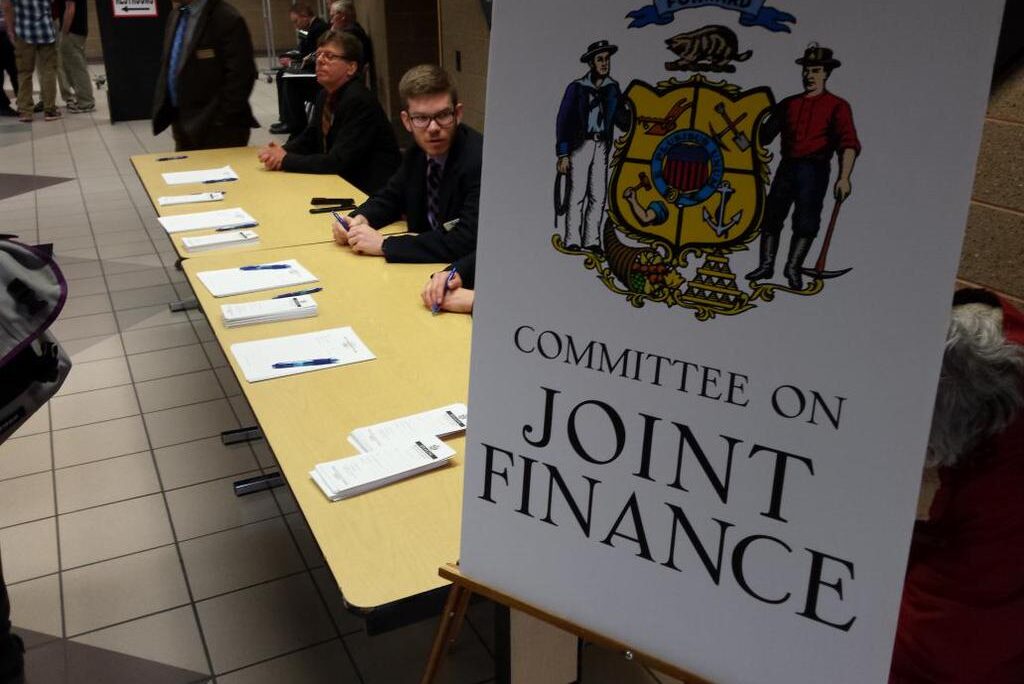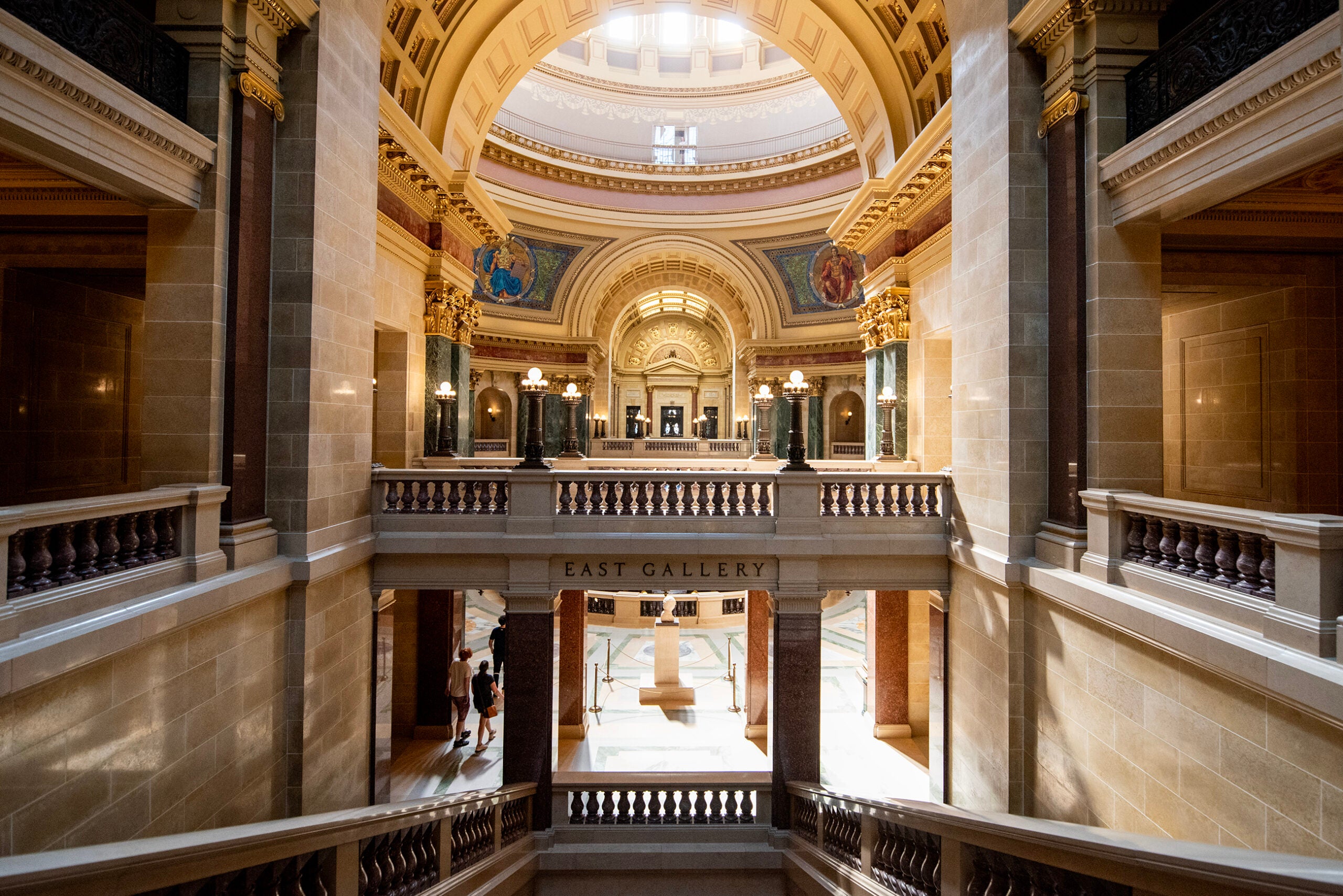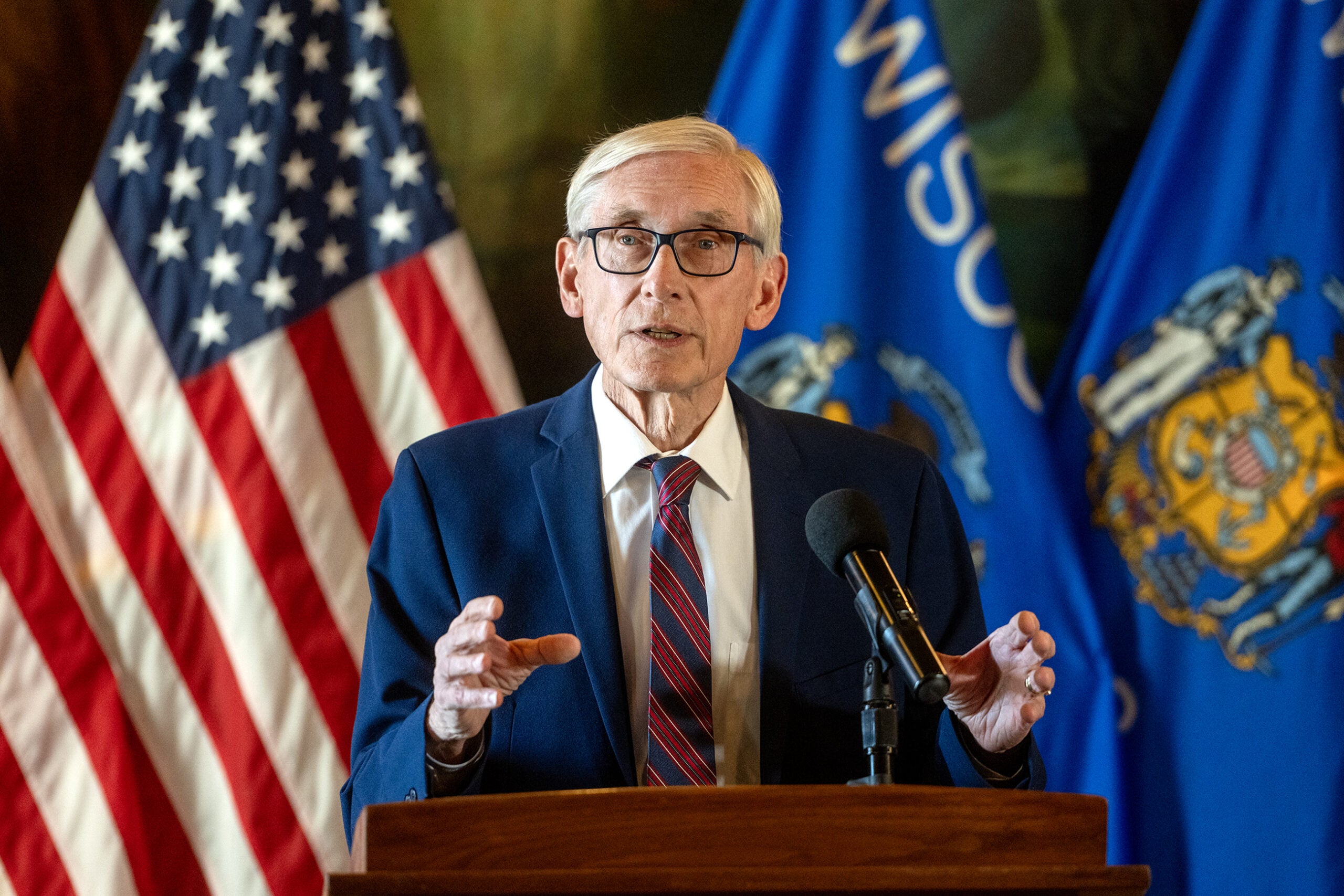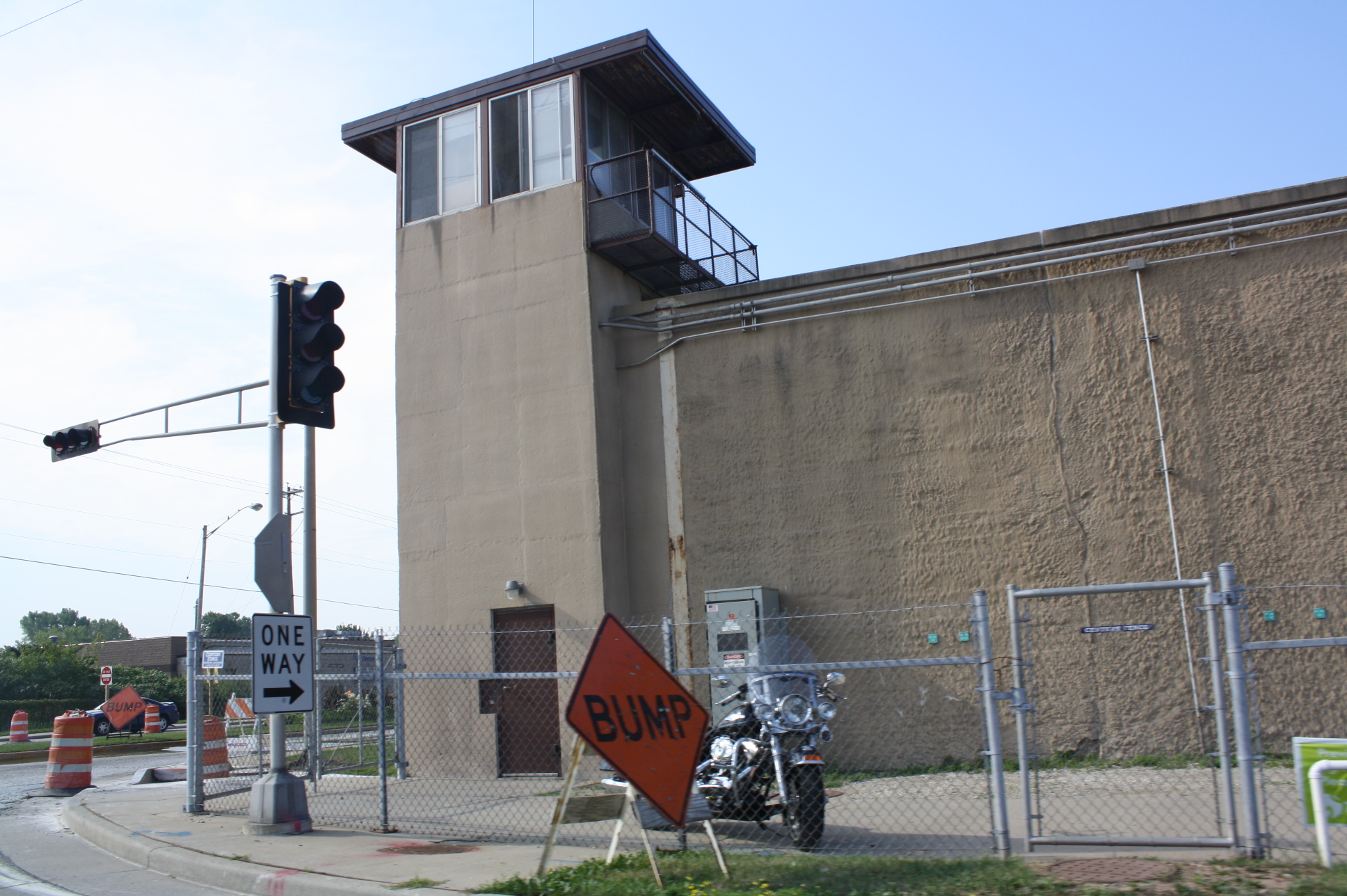The final state budget for 2025-27 will include a date to decommission the notorious Green Bay Correctional Institution, increase funding for the Universities of Wisconsin system by $256 million and cut taxes by $1.5 billion.
Those are some of the details that were approved during the final hearing of the Joint Finance Committee on Tuesday. The committee’s vote came after months of negotiations between both Republican leadership and Democratic Gov. Tony Evers, and in private caucus meetings between Republican members of the Assembly and Senate.
Pending lightning strikes, the budget bill now heads to the Legislature for a final vote, potentially as early as Wednesday morning, before it will go to Evers’ desk.
News with a little more humanity
WPR’s “Wisconsin Today” newsletter keeps you connected to the state you love without feeling overwhelmed. No paywall. No agenda. No corporate filter.
Evers has signaled that he will approve parts of the final document that were part of a negotiated deal announced early Tuesday, including $1.4 billion for K-12 schools and an increased reimbursement rate for special education. But he reserved the right to use his partial veto pen on other details.
“This budget has involved an awful lot of compromise, both between the houses as well as with the governor’s office,” said Sen. Howard Marklein, R-Spring Green, who co-chairs the finance committee, at a press conference ahead of the Tuesday committee hearing.
In one swift motion during the hearing, Republicans who control the committee approved dozens of new and changed expenses. They were joined in their approval by Democratic Sen. LaTonya Johnson, D-Milwaukee.
“It’s great to be here with this big, beautiful motion,” said Rep. Mark Born, R-Beaver Dam, who co-chairs the committee — alluding to President Donald Trump’s major domestic policy bill that cleared the U.S. Senate on Tuesday.
Lawmakers also approved $2.5 billion in capital funding, borrowing nearly $327 million of that. That’s short of the $4.1 billion that Evers requested for major building projects. But included in that funding is money to decommission the Green Bay prison, which lawmakers on both sides of the aisle have called for.
Doing so is also one step in a multitiered prison system overhaul Evers proposed earlier this year. While coy on details, Born hinted that elements of that proposal would be taken up down the road and that “planning money” would be set aside for “things necessary to close Green Bay correctional by 2029.”
All told, the cost of the overall budget bill leaves $829 million in state reserves, according to the nonpartisan Joint Fiscal Bureau.
Democrats on the committee criticized the overall outcome, saying it doesn’t go far enough. They called for another half billion for the UW system and nearly $750 million for the Department of Children and Families including $200 million for childcare providers.
“We know that when employers look to relocate and place their businesses in states, one of the things that they look for is an educated workforce. So, investing in these things are of utmost importance,” said Johnson, who ultimately voted for the motion. “We want to make sure that we are investing in the things that we hold dear, which is our children and our future.”
Republicans countered that the final deal was a “right-size” of Evers’ preferences, and they argued that Democrats were putting forward a progressive wish list.
“We’re not going to take one man’s vision when we start talking about Wisconsin as a whole,” said Rep. Tony Kurtz, R-Wonewoc.
The final deal was announced days after what was originally scheduled as the final budget session was delayed, then ended with the budget incomplete. The delays pointed to ongoing disputes within the Republican caucus, especially in the Senate, where at least two Republicans indicated their intention to vote against the GOP document.
That means GOP leaders have needed to court Democratic votes there instead.
Speaking early Tuesday, Marklein said he was “confident” there would be enough votes in his chamber to move the bill forward.
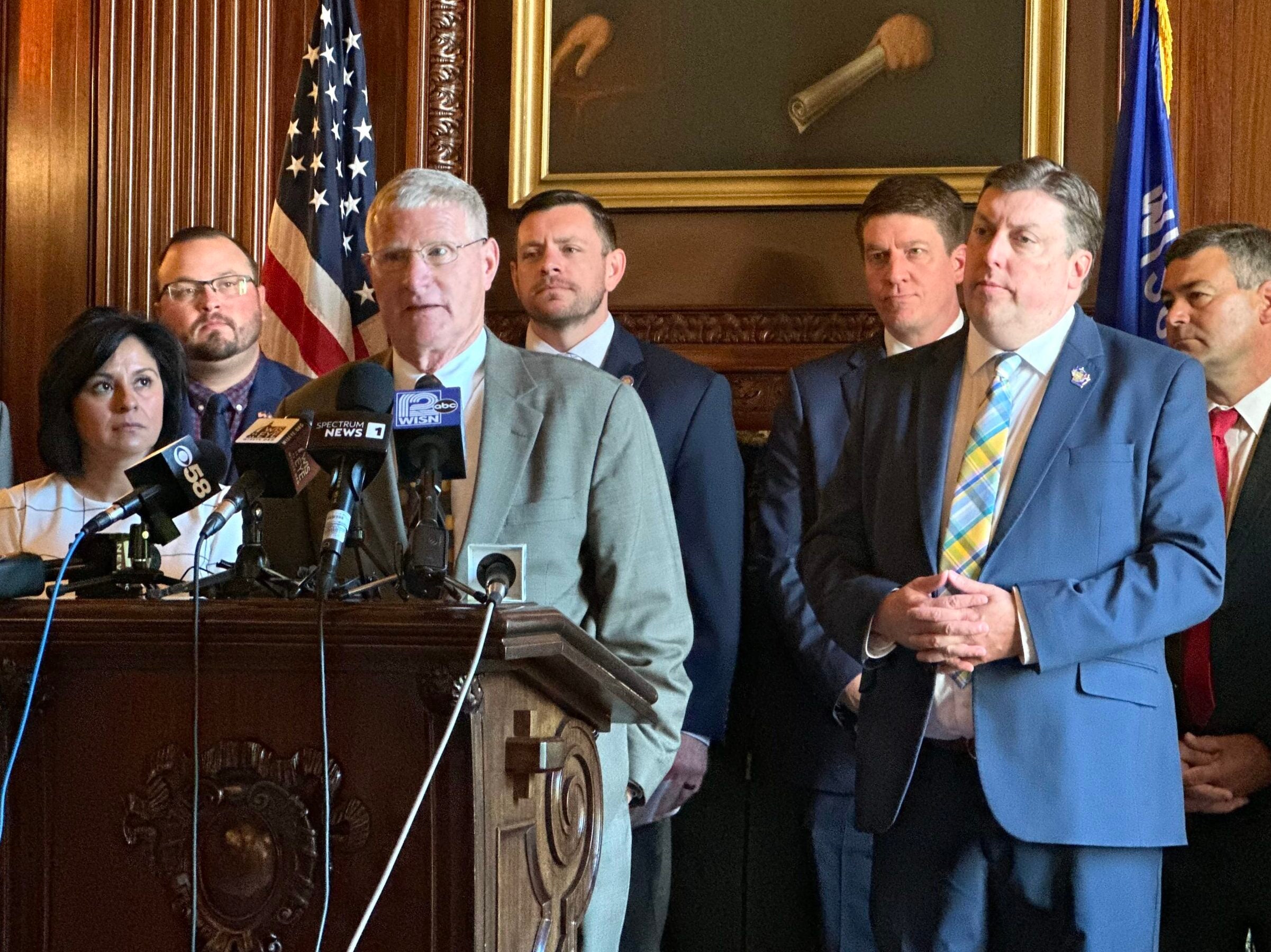
Closing Green Bay’s notorious prison
The committee approved overall $2.5 billion for capital projects, including closing the troubled Green Bay prison by 2029.
“We’re investing across the entire state system, including moving forward plans in the Department of Corrections to make sure that we right size and innovate in that area for the future,” Born said early Tuesday.
Evers had called for the prison to be shuttered, also in 2029, as one step in a multitiered, half-billion dollar prison overhaul in his own budget proposal. That plan would have rejiggered a series of facilities across the state, including converting Waupun Correctional Institution into a “vocational village.”
During the committee hearing, Born said Republicans and Democrats share broad priorities around what to do with prison buildings, but they weren’t aligned about specifics. He said Republicans would work out other changes to the prison system over the next several budget cycles.
“[Democrats] have an idea, and some parts of it might be a good idea, and I think some parts of that capital part we’re open to, but we need to actually hire some professionals to do the work and show what the actual costs are to do those things,” he said.
In a statement, the president of the village of Allouez, where the prison is located, said “any budget that does not include the closure of GBCI is unacceptable,” and called on Democratic Sen. Jamie Wall, D-Green Bay, to back the effort.
“This may not be the perfect solution, but it is the necessary first step towards a commitment to the Village of Allouez that this facility will close in the future,” the statement read.
The 127-year-old Green Bay prison has been plagued with safety concerns for years.
Cutting taxes
Republicans repeatedly said that the core of their budget priorities included a tax cut, and the final motion — included in the bipartisan deal announced early Tuesday — included about $1.3 billion in income tax cuts.
That also restructures the state tax brackets, reducing the tax rate on the second bracket, and exempting some retirement income for people above the age of 66.
Marklein said that “is going to have a meaningful impact on a lot of the average hard-working people in the state of Wisconsin.”
Increasing UW funding
Tuesday’s motion included hundreds of millions for the UW system, including an annual $26.5 million for overall operations and $3.5 million toward student mental health. It also includes hundreds of millions of dollars for building projects across the campuses, like a health sciences building at UW-Milwaukee, a library at UW-Oshkosh and a science center at UW-La Crosse.
That’s less than the $860 million that the system had requested — but a jump from the $87 million cut that Republicans had previously floated.
The budget also applies some requirements on the money, like tying it to each institution’s performance and placing a cap on the number of state-funded positions. It also requires that full-time staff must teach a certain number of credits per year, including summer classes.
In a statement, the UW faculty advocacy group PROFS said it is “concerned” about the teaching load requirements “which has always been the purview of the universities themselves, not the Legislature.”
‘Art of the compromise’
The committee’s final action came hours after Evers announced that lawmakers had established a sweeping framework for meeting both Democratic and Republican priorities, including about $1.5 billion in tax cuts and $1.2 billion for K-12 and higher education and child care.
That tentative deal included what Evers described as “the largest increase to the special education reimbursement rate in state history,” $110 million in direct payments to child care providers, $30 million for in-school mental health services for students and eliminating sales tax on household utility bills.
In early remarks, Born described both that negotiated deal and the final actions that the committee was bringing forward as “art of the compromise.”
“Every budget that we’ve done since Gov. Evers has been in office has been a compromise because it’s been split government,” he said, praising the tax cuts and changes.
Democrats by and large argued that the investments did not go far enough and that Evers was responsible for the final compromise.
“It should be a bipartisan document of our values and of our priorities,” Johnson said. “And it was a bipartisan effort, not necessarily by choice, but by force, and that’s OK. We’ll take it any way we can get it.”
Other details
On Tuesday, the finance committee also voted to:
- Release more literacy funding from Act 20, including $37 million for grants to schools adopting new reading training curricula
- Increase the special education reimbursement rate to 42 percent in 2025, and 45 percent in 2026
- Allow Milwaukee County to keep all of its traffic fine revenue, part of which will go toward hiring more prosecutors
- Spend $20 million to develop the Port of Green Bay, $10 million to restore a dam on Echo Lake in the city of Burlington and $1.79 million to expand psychiatric residential treatment
Wisconsin Public Radio, © Copyright 2026, Board of Regents of the University of Wisconsin System and Wisconsin Educational Communications Board.

